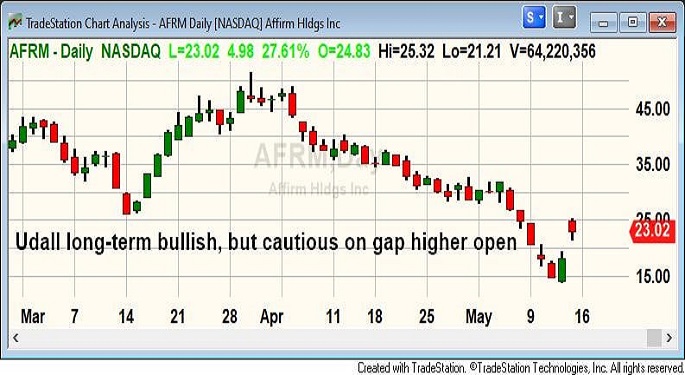
Brazil and Asia won the best performing stock markets in 2022: the winners and losers are as follows
An unprovoked war threatening the energy crisis in Eastern Europe, a new wave of COVID-19 in China, and crazy interest rate hikes by major global central banks to curb inflation are the main themes in 2022.
This year was very difficult for investors, because financial assets were sold wantonly, and high-quality and safe haven assets were not spared. Due to the high risk, stocks were hit hardest.
The US market is in the leading position, falling sharply and dragging down the average level of other regions. " After a year of macroeconomic and geopolitical shocks, investors responded by reducing the price earnings ratio (P/E) of the S&P 500 index by as much as seven times, while some speculative growth sectors plummeted 70-80% from high, "JPMorgan Chase said in a recent report.
It all started with concerns about interest rate hikes and their potential impact on fragile economic growth. Since the end of 2020, with the impact of monetary and fiscal stimulus policies implemented after the first wave of COVID-19 wave beginning to be reflected in prices, inflation has deteriorated.
The inflation rate in the United States accelerated to a 40 year high of 9.1% in June, and then cooled slightly. Inflation is not a problem unique to the United States, because most other global economies have similar backgrounds and price pressures are rising in various countries. The global central banks have no choice but to accelerate interest rate hikes, which indicates a hard landing.
After the cumulative interest rate increase of 425 basis points, the federal funds rate is currently 4.25% - 4.50%. The Bank of Japan is the only central bank in developed countries that has held its ground. Recently, it announced that it would adjust policy interest rates and control bond yields, further increasing long-term interest rates.
The Russia Ukraine war, which began in late February, led to the confusion of most well considered policies and plans, because the bottleneck of the supply chain led to the soaring price of inputs. Even if the central bank began to worry about the trajectory of retail prices, it further exacerbated inflation.
The last straw was the intermittent recurrence of COVID-19 in China.
Worst and best: Russian stock market average index and Korean Kospi index are the worst performing indexes among G20 countries.
It is not surprising that Russia has had a bad year. By the end of the year, the MOEX Russia Index had fallen by about 43%. The domestic stock market was closed for about a month due to the price collapse caused by Russia's invasion of Ukraine. Official data released by Russia in November showed that the economy fell into recession, with a year-on-year decline of 4% in the third quarter.
Kopi fell about 24.89% before closing at 2236.40 at the end of the year. According to Reuters, this marks the first annual loss of the index in four years. According to the report, Kim Seok hwan, a future asset securities analyst, said that the global central bank's tightening of liquidity was the main reason for the weakness of the stock market in 2022.
The best performer was Brazil's Ibovespa, which rose 4.7% in local currency terms. Analysts hope the index will continue to perform well in the coming year. According to Bloomberg, Alejo Czerwonko, chief investment officer of emerging markets at UBS, said in a report in September that the Brazilian stock market should benefit from long-term high commodity prices, very attractive valuations (which do not reflect macroeconomic conditions) and relatively low global liquidity tightening risks
By the way, Brazil has stood out in several Asian markets and won the championship. India's 30 Sensex shares closed up 4.44%. Indonesia's Jakarta Composite Index and Singapore's Straits Times Index followed closely, rising 4.09% and 4.02% respectively.
According to Bloomberg, with the reopening of the pandemic and the recovery of the tourism industry boosting corporate profits, the markets in South and Southeast Asia benefited from funds chasing stocks in the region. It added that relatively moderate inflation would help offset the impact of a stronger dollar.
The UK market won the honorary award because it is the only market in major developed economies that closed green. Despite the political instability and the accompanying economic turbulence, the performance still emerged.
Performance of major global averages:
North America:
United States (S&P 500 Index): -19.44%
Canada (S&P TSX Composite Index: -8.66%
Europe:
France (CAC 40): -9.50%
Germany (DAX): -12.35%
UK (FTSE 100):+0.91%
Asia Pacific:
Japan (Nikkei 225): -9.37%
Hong Kong (Hang Seng Index): -15.46%
China (Shanghai Composite Index): -9.61%
Indonesia (Jakarta Composite Index):+4.09%
Taiwan (Taiwan Weighted Index): - 22.40%
Singapore (Singapore Straits Times Index): 4.02%
Malaysia (FTSE Malaysia Composite Index): -4.60%
Thailand (Thailand Aggregate Index):+0.67%
India:+4.44%
New Zealand (NZX 50 Index): -11.92%
Australia (all ordinary shares): -7.17%
South America:
Brazil (Ibovespa):+4.69%
Mexico (IPC Mexico): -9.03%

